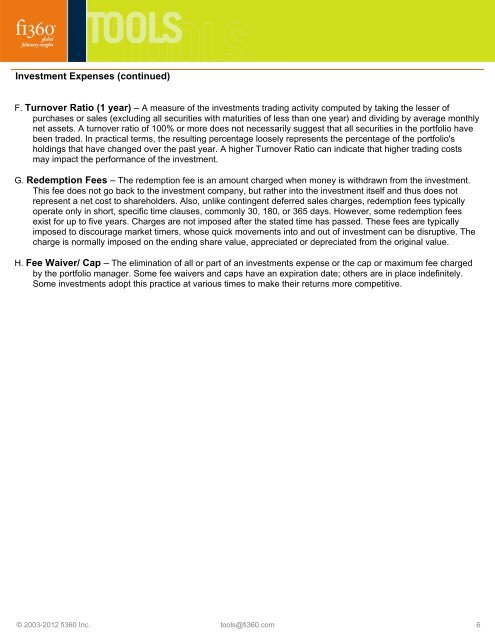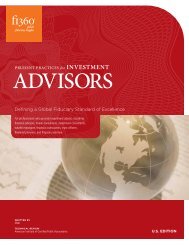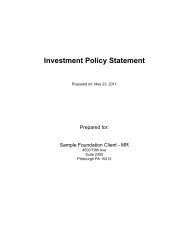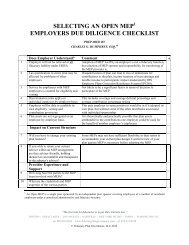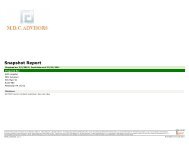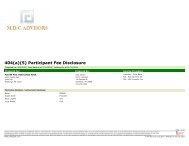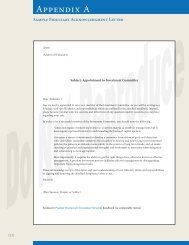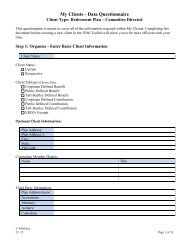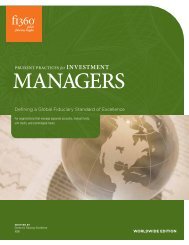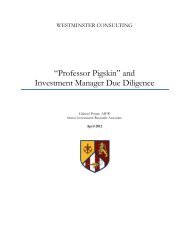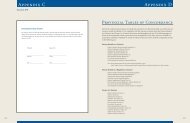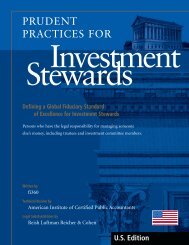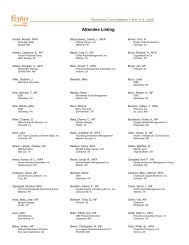How to interpret the Fund Fact Sheet report - Fi360
How to interpret the Fund Fact Sheet report - Fi360
How to interpret the Fund Fact Sheet report - Fi360
Create successful ePaper yourself
Turn your PDF publications into a flip-book with our unique Google optimized e-Paper software.
Investment Expenses (continued)<br />
F. Turnover Ratio (1 year) – A measure of <strong>the</strong> investments trading activity computed by taking <strong>the</strong> lesser of<br />
purchases or sales (excluding all securities with maturities of less than one year) and dividing by average monthly<br />
net assets. A turnover ratio of 100% or more does not necessarily suggest that all securities in <strong>the</strong> portfolio have<br />
been traded. In practical terms, <strong>the</strong> resulting percentage loosely represents <strong>the</strong> percentage of <strong>the</strong> portfolio's<br />
holdings that have changed over <strong>the</strong> past year. A higher Turnover Ratio can indicate that higher trading costs<br />
may impact <strong>the</strong> performance of <strong>the</strong> investment.<br />
G. Redemption Fees – The redemption fee is an amount charged when money is withdrawn from <strong>the</strong> investment.<br />
This fee does not go back <strong>to</strong> <strong>the</strong> investment company, but ra<strong>the</strong>r in<strong>to</strong> <strong>the</strong> investment itself and thus does not<br />
represent a net cost <strong>to</strong> shareholders. Also, unlike contingent deferred sales charges, redemption fees typically<br />
operate only in short, specific time clauses, commonly 30, 180, or 365 days. <strong>How</strong>ever, some redemption fees<br />
exist for up <strong>to</strong> five years. Charges are not imposed after <strong>the</strong> stated time has passed. These fees are typically<br />
imposed <strong>to</strong> discourage market timers, whose quick movements in<strong>to</strong> and out of investment can be disruptive. The<br />
charge is normally imposed on <strong>the</strong> ending share value, appreciated or depreciated from <strong>the</strong> original value.<br />
H. Fee Waiver/ Cap – The elimination of all or part of an investments expense or <strong>the</strong> cap or maximum fee charged<br />
by <strong>the</strong> portfolio manager. Some fee waivers and caps have an expiration date; o<strong>the</strong>rs are in place indefinitely.<br />
Some investments adopt this practice at various times <strong>to</strong> make <strong>the</strong>ir returns more competitive.<br />
© 2003-2012 fi360 Inc. <strong>to</strong>ols@fi360.com 6


